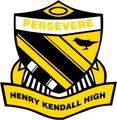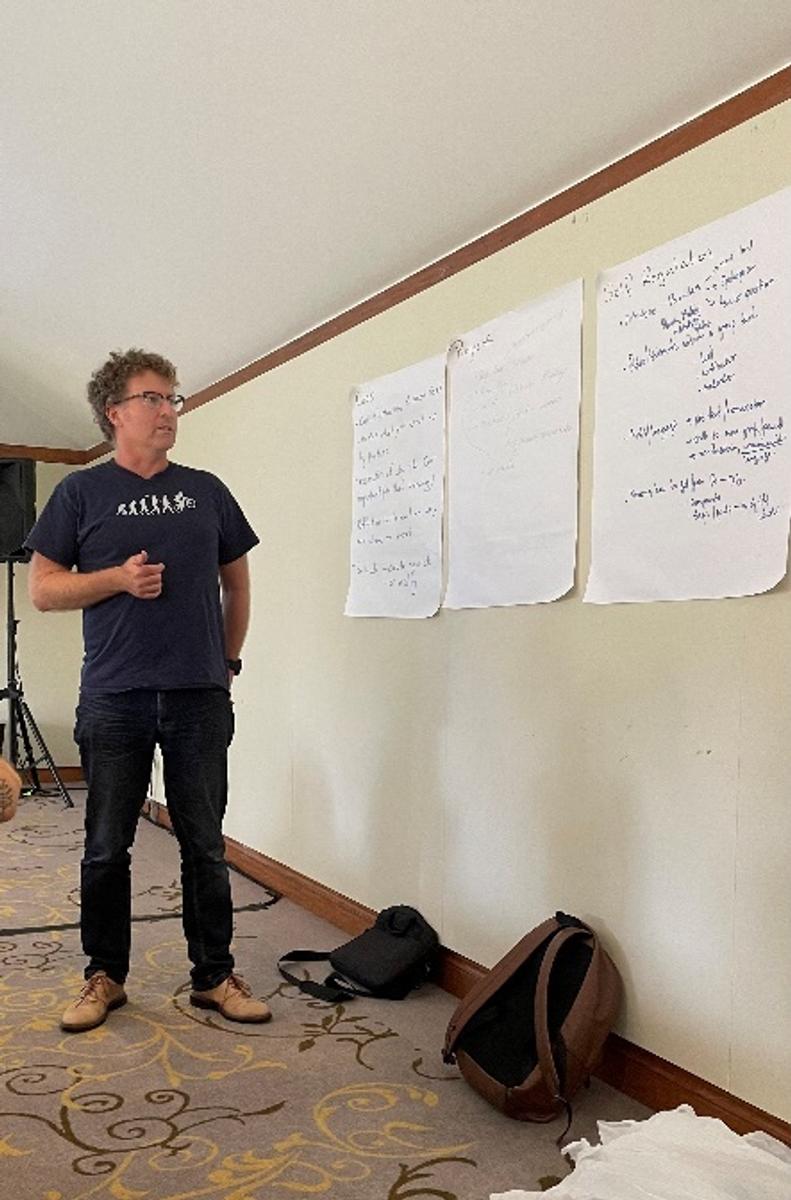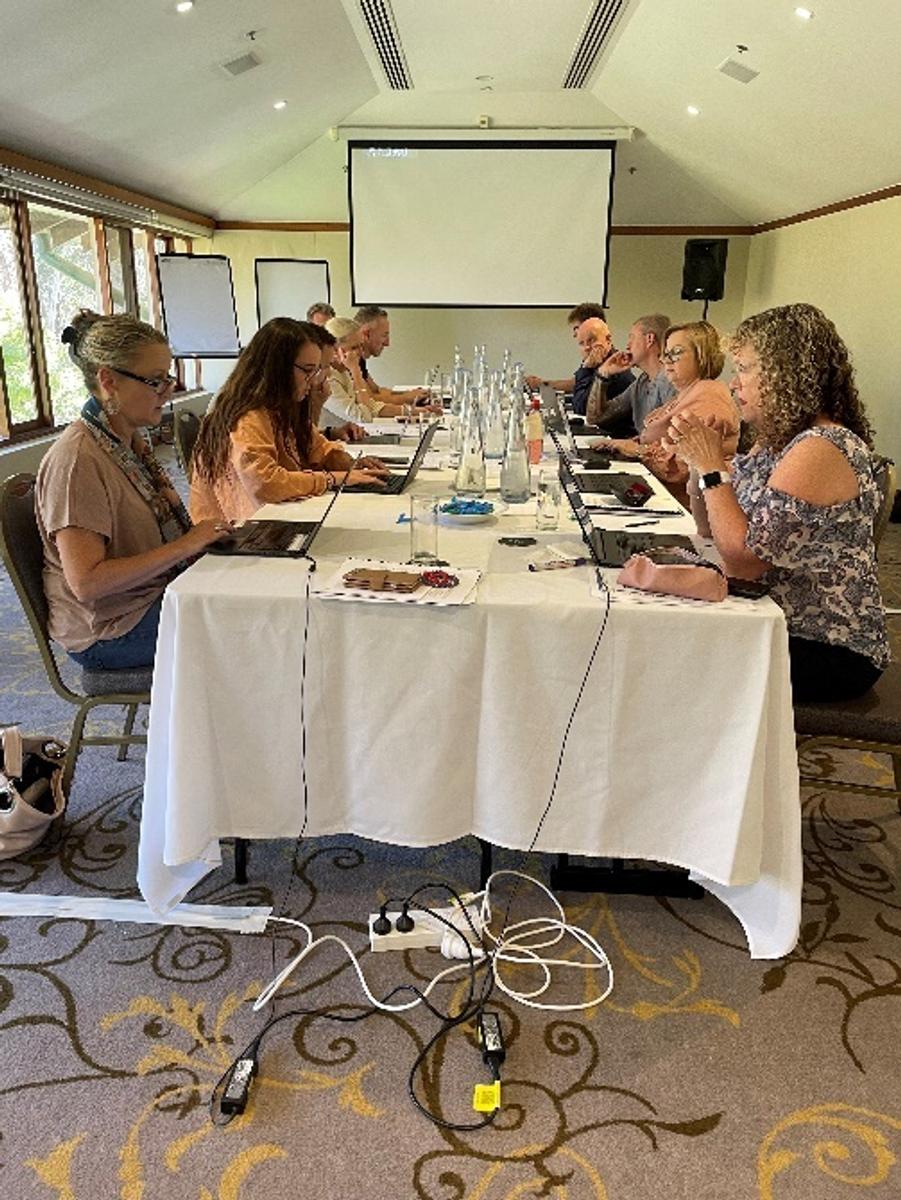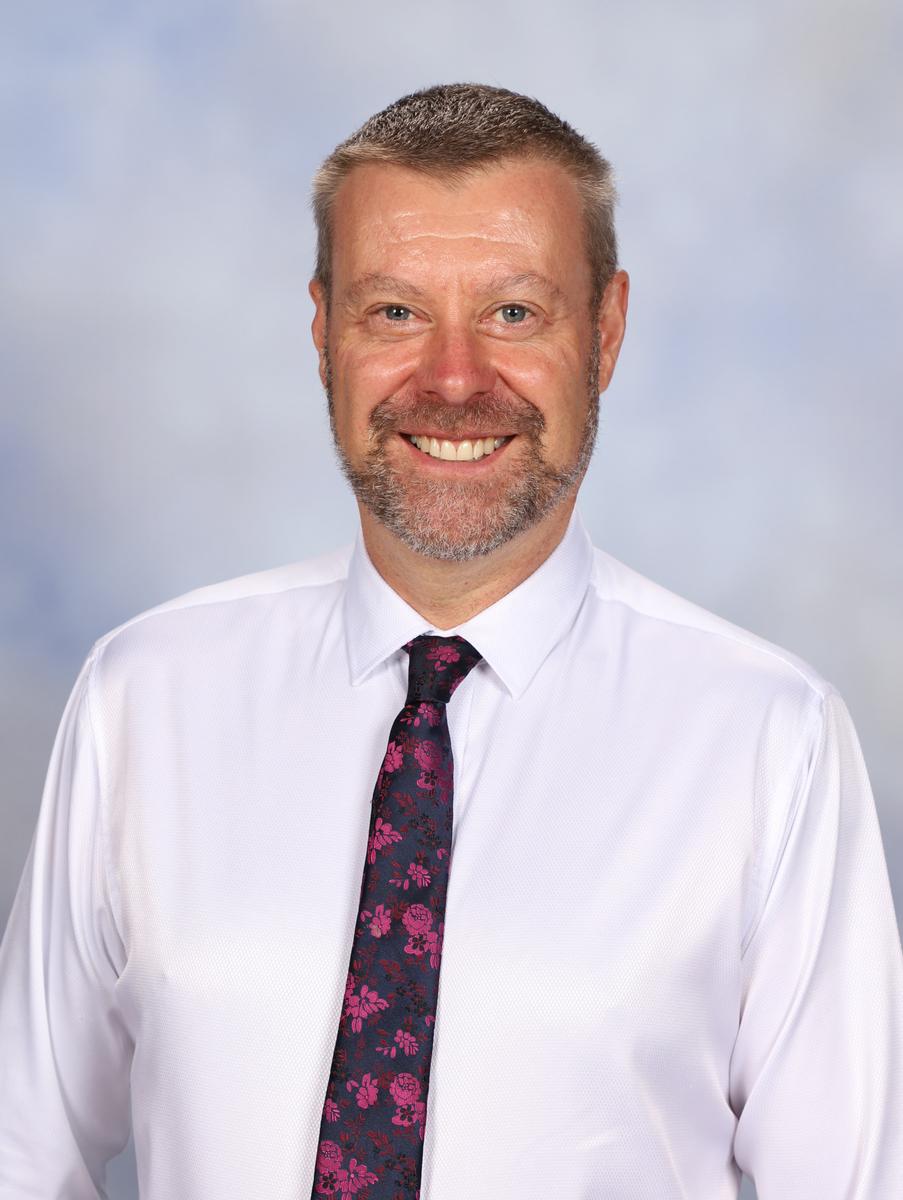Principals Report

Another Term With A Difference
As we near the end of term one I can certainly say that the school year is well underway, and for Henry Kendall High it has been a very hectic but really positive term. Despite the restriction that we commenced the school year under, the changing landscape before us, and the management of Covid within our community, our school has persevered and made the most of the opportunities we have had.
We are now starting to engage more normally with things like sporting teams, inter-school competitions, excursions, and school events. Staff and students alike have welcomed the lowering of cohort limitations, and while this has caused concern for some it has reignited the sense of community that is a hallmark of our school.
Daily Covid cases are still a part of our landscape, however they are limited to a handful at a time and appear to be well below the impact experienced in other schools. However, it is important that Henry Kendall High School continues to follow the Department of Education’s Guidelines and advice regarding the management of Covid. We are utilising a range of safety measures including rapid antigen testing, vaccinations, ventilation, hygiene and cleaning to allow us to prioritise student and staff wellbeing while keeping our school operational.
We now move into Term 2 with positivity and optimism as we can continue to re-engage in things that we used to take for granted – our carnivals, student leadership activities, camps, competitions, and events that build our sense of community and belonging. I’d like to thank our students for the immense cooperation and positivity that they displayed through the restrictions of the first month of the school year, and look forward to that same positivity being reflected in all that we undertake in the rest of the year.
Executive Conference 2022
On Monday 21st and Tuesday 22nd March the school executive held our annual conference, which represents a vital opportunity to spend two days focusing on our core business of teaching and learning, and on the development of the leadership capacities of each person.
This year we continued our focus on Formative Assessment training and planning across the first day. Formative Assessment is essentially practices that utilise five specific strategies (pillars) aimed at making teaching and learning truly responsive to student needs on an individualised rather than generic level. The focus of our conference was on the pillars of Peer Assessment and Self Assessment and represent the last stage of a three-year training plan that underpins the implementation of Formative Assessment Practices across all areas of the school by 2025. As in all stages of our development we linked with specialists from the Department of Education, with the training focused on embedding concepts that each Head Teacher will lead at a faculty level. All teachers will now undertake specific training in these pillars at our Term 2 Staff Development Day.
The second day of the conference was focused on the development of leadership capacity within each member of the school executive. Our focus was on the concepts of Resilience, Recovery and Stoicism and was led by Tim Perkins from Cut Through Coaching. Through devolving into specific aspects that impact and effect leadership practice each day, we are better placed to understand our own patterns of behaviour, frames of reference and ways of managing the daily challenges faced as school leaders. Given the context of the past two years, the experiences that we have managed, and the incredible disruption to all that we know; these topics were particularly pertinent for our 2022 conference. Our executive team found this focus enormously purposeful and beneficial, empowering us to continue to lead our school through strengthened self-awareness and clarity.
2021 Situational Analysis and Review
Through the first part of Term 2 I will be working with the school leadership team to write the 2022-25 School Improvement Plan, with a significant focus on addressing the mandated targets the department has set for our school in aspects of NAPLAN and HSC achievement, wellbeing, and in student attendance.
To undertake this process, we are required to complete a Situational Analysis and Annual Review to inform these directions, which I reported on to the P&C at the AGM. I’d like to recognise and thank the school executive for their significant contribution to this process.
This process analysed a broad range of information and is detailed in content. For the purposes of this newsletter I have summerised our findings. For a comprehensive overview I direct our community to our Annual Report 2021, available on the School Website.
Strategic Direction One
- Literacy and Numeracy – intended initiatives were significantly impacted by the pandemic, however both quantitative and anecdotal data suggests an improvement across student literacy and numeracy as well as a noticeable improvement in student enjoyment of and engagement with literacy and numeracy activities. Students exceeded targets relating to Top NAPLAN Bands in both Literacy and Numeracy and were close to meeting targets relating to Expected Growth. Expected Growth targets will form the focus of literacy and numeracy withdrawal groups.
- HSC – a continued focus on ensuring students reach their personal best remains a priority. Processes that support this include student mentoring, clear guidelines on subject selection and intensive support through this process, the provision of authentic assessments and constructive feedback, teacher mentoring and HSC marking experience, and collegial marking opportunities. These measures allow for a very supportive framework for all students, however the upheaval caused by Covid-19 guidelines and restrictions did impact on the provision of a traditional HSC program in 2021.
- Attendance – our school maintains a well-established and embedded structure in response to the needs of students focusing on attendance. There are effective data collection and communication methods using improved roll marking practices, SASS officer daily communications to families and communication through the Attendance Coordinator. Students attending school greater than 90% of the time in 2021 was 66.6%. In 2020 it was 53.2%, and in 2019 it was 52.4%. While this trend is positive, the department determined target for our school is 72.4%. Also positive is that our overall attendance rate for 2021 was 90.9%.
Strategic Direction Two
- Learning Partnerships - In 2021 our focus was on the school's P-Tech program in collaboration with IBM International. Students participated in online mentoring in groups of three with a Central Coast industry expert drawn from a wide range of professions. The mentoring sessions focused on building relationships, professional skills, communication, self-management, and planning goals. In a second element, P-Tech digital badges are industry recognised micro-credentials attained online via IBM Skills Build. Our students in year 9 attained a badge in Cybersecurity, studied in the schools Futures Learning course. Late in 2021, our school forged a new industry partnership with Gosford Private Hospital, opening a broad range of opportunities for our students in work experience, on the job training, industry visits and apprenticeships.
- Applied Learning - In 2021 we implemented a research driven model of Applied Learning as a core component of our revised Stage 4 curriculum. Students were strategically guided through one project per term, led by specialist teachers in project-based learning pedagogies. Collaborative practice was a core component in both teaching and learning cycles, and student reflections on their learning was a key activity that also contributed to their report comments. Each project focused on real, authentic, and engaging learning developed to provide a product for a 'real' audience. Projects were designed to solve real world problems through student directed learning and were delivered in both physical and online forums. Student engagement in self-directed learning was monitored through establishing baseline data against the ACARA General Capabilities Framework.
- Formative Assessment - In 2021 staff were trained in Effective Questioning, as well as revisiting the concepts of Learning Intentions and Success Criteria. The Executive worked with their faculties to plan the implementation of Effective Questioning and maintain and the implementation of Learning Intentions and Success Criteria. Evidence of implementation was collected, collated and presented to staff to inform future directions for improving teaching and learning. A Formative Assessment Collaborative Team was created to provide a resource for support, gathering evidence and providing strategic directions across the whole school.
- Student Reports - The school community worked collaboratively to evaluate the effectiveness of the reporting format and content. It was decided through several forums and discussions to move towards a change in focus to skills rather than aptitudes that represent more the currency of student learning and skill development. As a result, all aptitudes were replaced with collaboration, communication, creative thinking, and critical thinking as the focus areas of growth. All Stage 4 & 5 reports have been changed and reflect the school focus. Stage 4 reports contain 4 reports contained student reflection statements on their learning both academically in Applied learning and emotionally in Wellbeing. Stage 6 final learning progression statement is collaboratively created with a conference between Year Advisor and student.
Strategic Direction Three
- Wellbeing – the wellbeing program has been developed and successfully embedded into the Stage 4 curriculum and is unique to our school. In 2021, students participated in a skilled-based approach that is comprehensive and thorough. Students in Year 7 and 8 participated in a school developed survey that aligned with the Department of Education Wellbeing Framework and Tell Them From Me criteria of belonging, self-advocacy, and personal success. The survey was conducted in Week 6, Term 1 and again in Week 6, Term 4 using student friendly language. The establishment of baseline data allowed for us to identify areas of growth or decline in students as they progressed throughout the year.
- Aboriginal Education - Cooinda has had a long history of teaching and learning of First Nations perspectives. It has a recognised site in the Cooinda Room that is valued by the community and the school. By connecting every student and every teacher to the room and the resources it is one of the most significant and powerful ways to address and embrace how valuable this is, not just to our school but to Australian society as our students are the citizens of tomorrow. Aboriginal Studies was introduced in the Year 7 curriculum for the first time, building our students cultural awareness and understanding.
- Student Leadership – our Student Action teams have engaged with external providers offering development in public speaking, whole school planning and project implementation. In Term 1 2021, Student Action Teams undertook two planning days to design, plan and schedule twelve whole school events that would be implemented across the school calendar. Students were able to run Harmony Day in Term 1 2021, however, due to Covid-19 guidelines and restrictions a large range of events organised had to be cancelled in 2021. However, we have identified that through this process we were able to attract more proactive and self-motivated students who have demonstrated specific leadership skills across the school community, with 8 of the 9 senior leaders in 2022 being drawn from the 2021 action teams.
Lismore High School
Donation Drive
A group of our Year 7 students have shown enormous initiative and a strong sense of citizenship in organising a whole school donation drive to support the students of Lismore High School. Their leadership, selflessness and care for others is to be commended, and I extend this recognition to the whole school community who got behind the effort and have donated a significant number of supplies to support students from the flood affected area of Lismore. Well done to the students of 7A, and specifically to Alex Berry, Tully Cain, Hami Nguyen, Quynh Nguyen and Neer Sheokand for their leadership of this wonderful initiative.
Mr Andrew Backhouse
Principal



